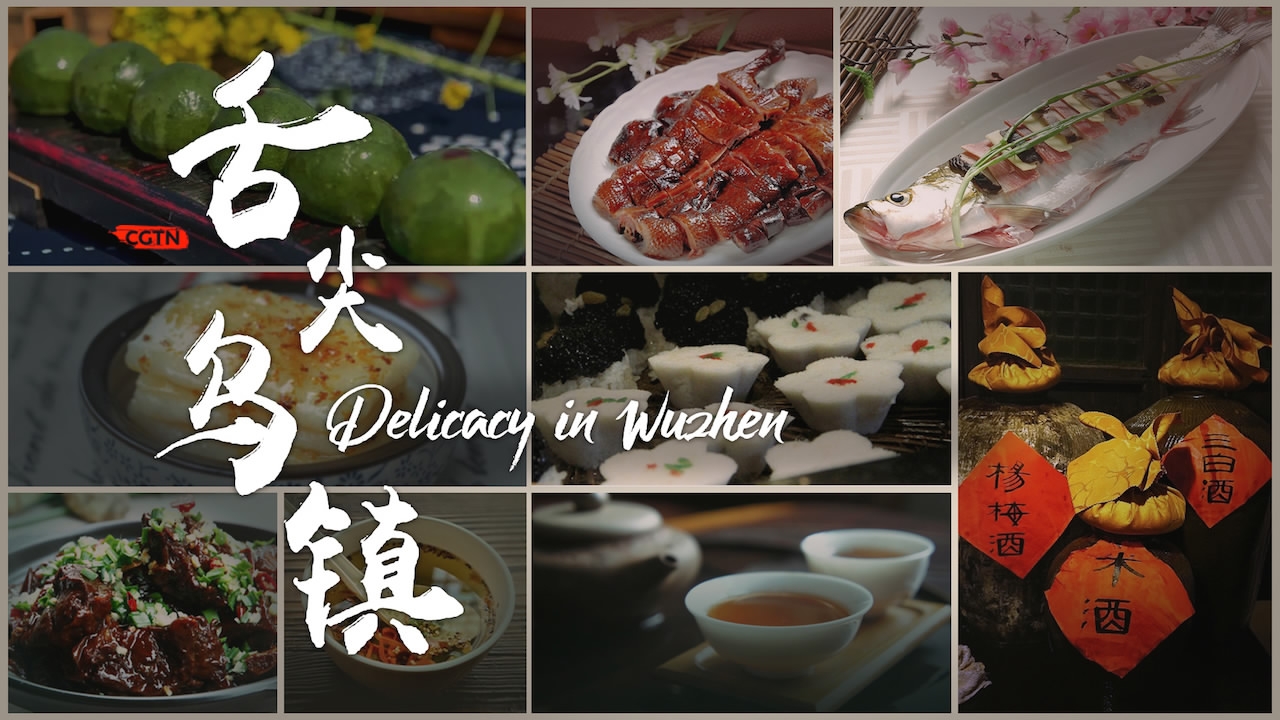A gourmet paradise blessed with fresh local produce, Wuzhen offers a wide variety of traditional Chinese dishes allowing tourists to sink their teeth into the mouth-watering experiences.
The ancient water town is a popular tourist destination with nearly seven million visitors walking through its streets and bridges each year. Wuzhen has a history of over 1,300 years, and lies in east China's Zhejiang Province.
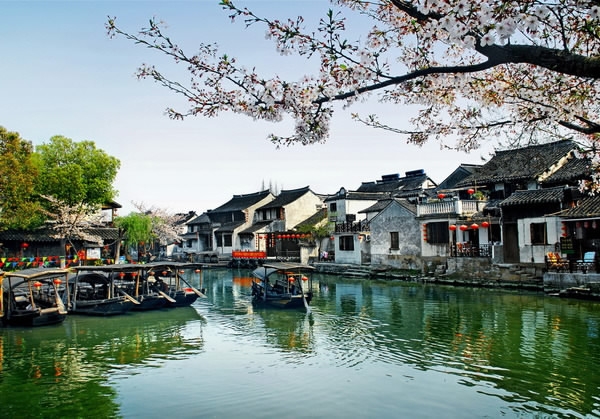
Wuzhen in Spring. /Photo via cnto.org
Wuzhen in Spring. /Photo via cnto.org
Most people explore the picturesque landscape of the time-honored town to enjoy the traditional folk customs, ancient residential houses, workshops and stores. But they should never miss the savory dishes in Wuzhen, which includes fish, local refreshments, and other delicacies. Using the town's traditional recipes, the delectable aroma wafting over the entire length of the ancient, winding streets is unavoidable.
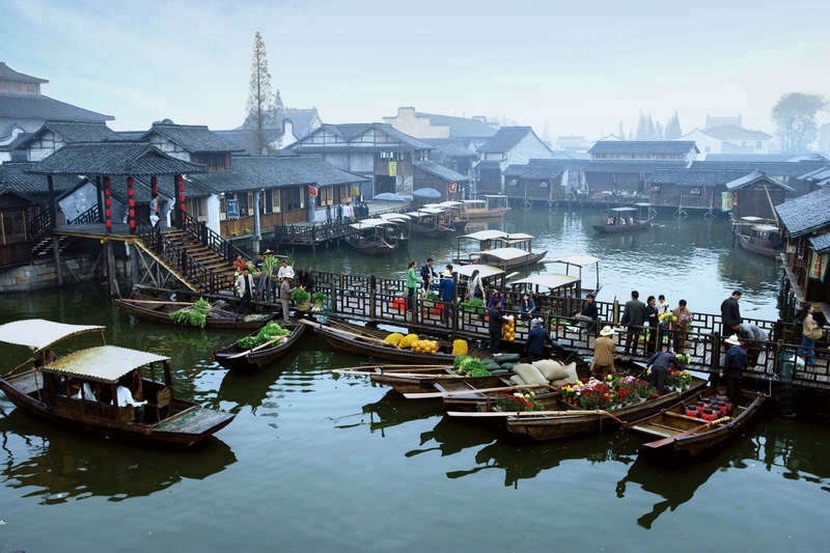
People can buy fresh produce, tea, and goods from boats that line the bridges in Wuzhen's water market. /Photo via cnto.org
People can buy fresh produce, tea, and goods from boats that line the bridges in Wuzhen's water market. /Photo via cnto.org
Nourishing fish with tender texture
Delectable fresh fish is surely a staple of this water town. Wuzhen’s Baishui fish is one of the famous local specialties. The flesh is smooth, flaky and naturally sweet. You can find it steamed, boiled and fried, the tender texture is unforgettable. Other seafood, such as shrimp and crab are also freshly served for visitors to try.
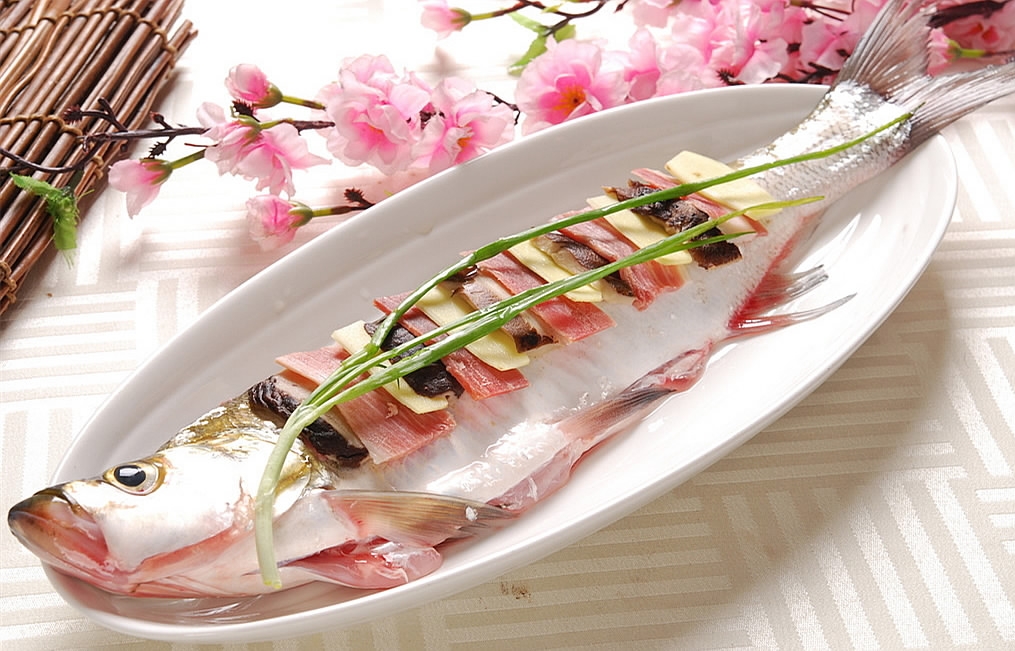
The uncooked Baishui fish. /Phot via lvmama.com
The uncooked Baishui fish. /Phot via lvmama.com
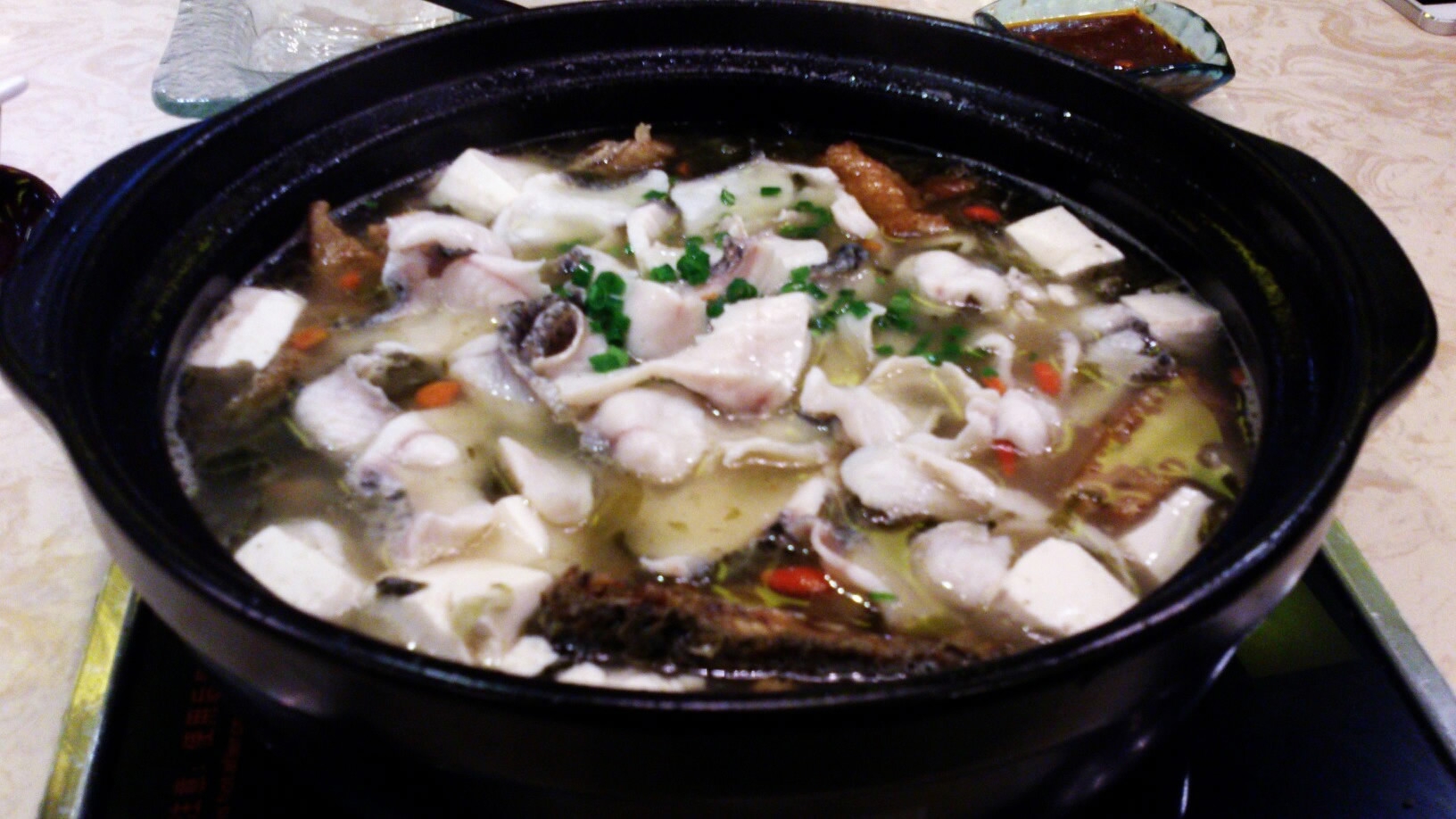
Stewed fish with spices in Wuzhen. /Photo via lvmama.com
Stewed fish with spices in Wuzhen. /Photo via lvmama.com
Braised mutton in brown sauce for winter
Braised mutton in Wuzhen is a reddish brown dish with a good aftertaste. The choice of materials for this dish is fastidious. The mutton comes from a specially chosen kind of sheep that is soft and low in fat. They also look for sheep that has thin and smooth skin.
This dish is perfect for the winter in Wuzhen. It tastes crispy, sweet and a little bit spicy. This slow-cooked, oriental style stew goes well with plain steamed rice. While Wuzhen residents cook the lamb outdoors during winter, visitors will find an appetizing lamb banquet along the old street.
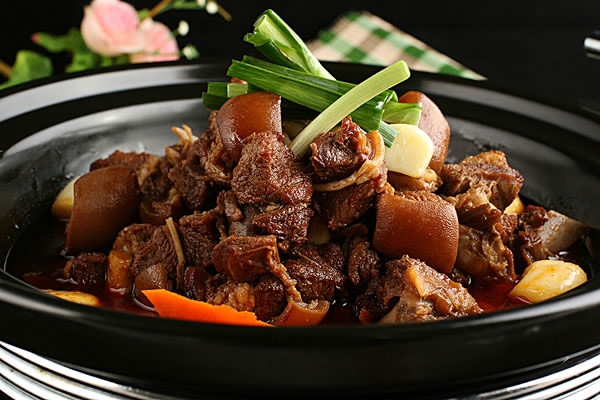
Braised mutton in brown sauce. /Photo via sohu.com
Braised mutton in brown sauce. /Photo via sohu.com
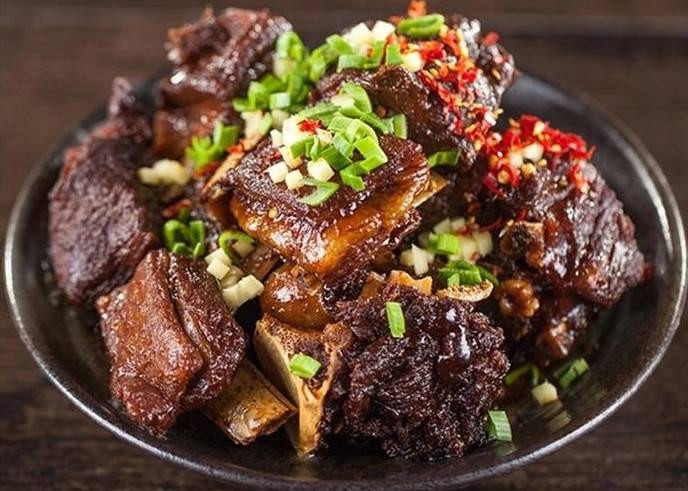
Braised mutton in brown sauce. /Photo via sohu.com
Braised mutton in brown sauce. /Photo via sohu.com
Sweet tooth addiction for rice cakes
Rice is considered to be essential to Wuzhen’s local snacks. Dingsheng cake is made from glutinous rice and steamed in wooden molds. It is usually stuffed with red bean paste and sweetly scented osmanthus, making it a chewy in texture and delicately sweet, but not greasy.
The local dessert is a symbol of triumph as its name includes a pun on the Chinese word for “invincibility." Legend says it was originally made to encourage soldiers in the war or students who set out to take the imperial examination. Preparing several steamers full of sugary, chewy Dingsheng cakes was a way to wish them success.
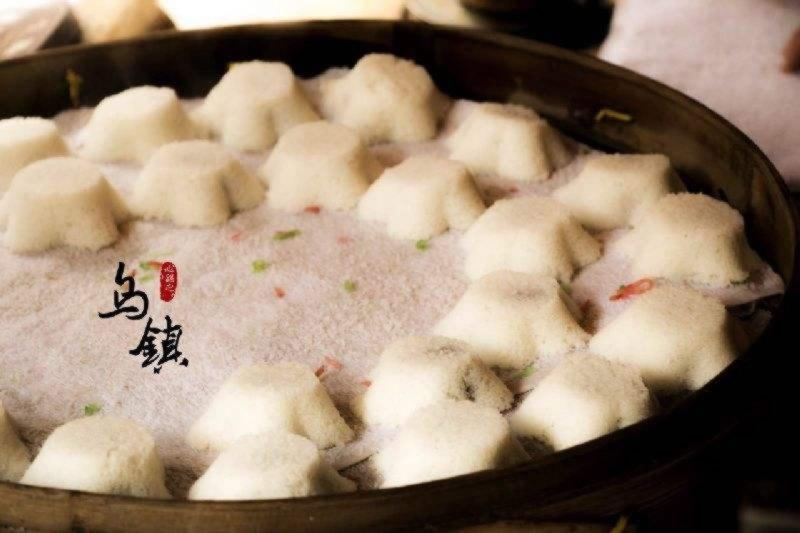
Wuzhen's Dingsheng cake. /Photo via naic.org.cn
Wuzhen's Dingsheng cake. /Photo via naic.org.cn
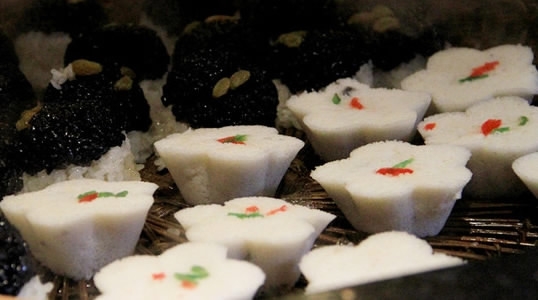
Wuzhen's Dingsheng cake. /Photo via naic.org.cn
Wuzhen's Dingsheng cake. /Photo via naic.org.cn
Qingtuan is another kind of culinary delight served on the streets in Wuzhen. These fragrant, sticky green rice cakes are made by grounding tender leaves and grass shoots into glutinous rice powder. They're often filled with sweet bean paste, with a unique flavor that's both herbaceous and sweet.
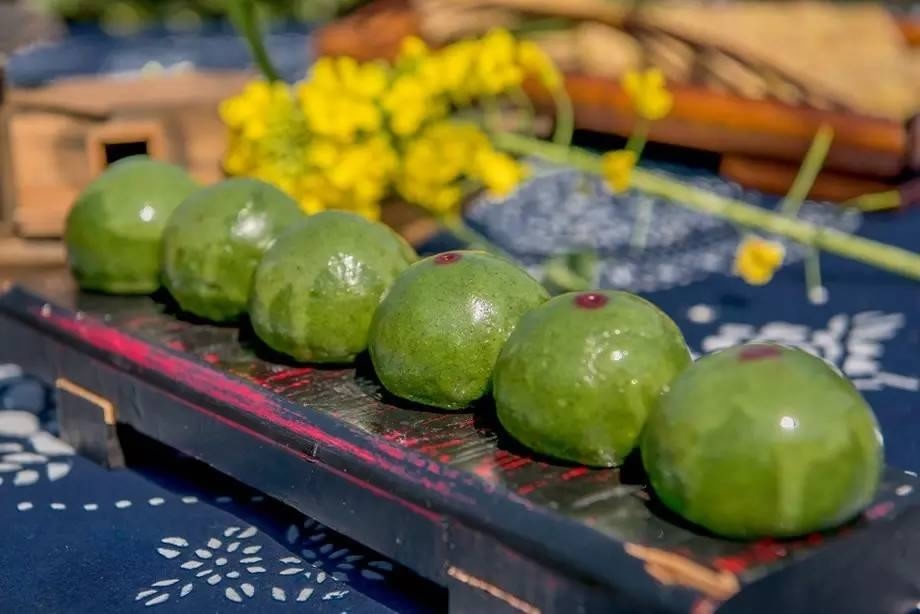
Green-colored Qingtuan. /Photo via naic.org.cn
Green-colored Qingtuan. /Photo via naic.org.cn
Winding lanes drift the fragrance of wine and tea
Sanbai wine, a liquor distilled from white rice is still made by hand in old-fashioned distilleries, which started as early as the 14th century. The thick, strong smell of Sanbai wine, the most famous alcoholic drink in the water town, can permeate the air, pleasing the palate with its soft and lasting mellowness.
Either drinking in the vintage distillery as fresh wine drips into the jar, or having a glass of Sanbai wine on a stool in a restaurant, it is a great way to enjoy one’s time in Wuzhen.
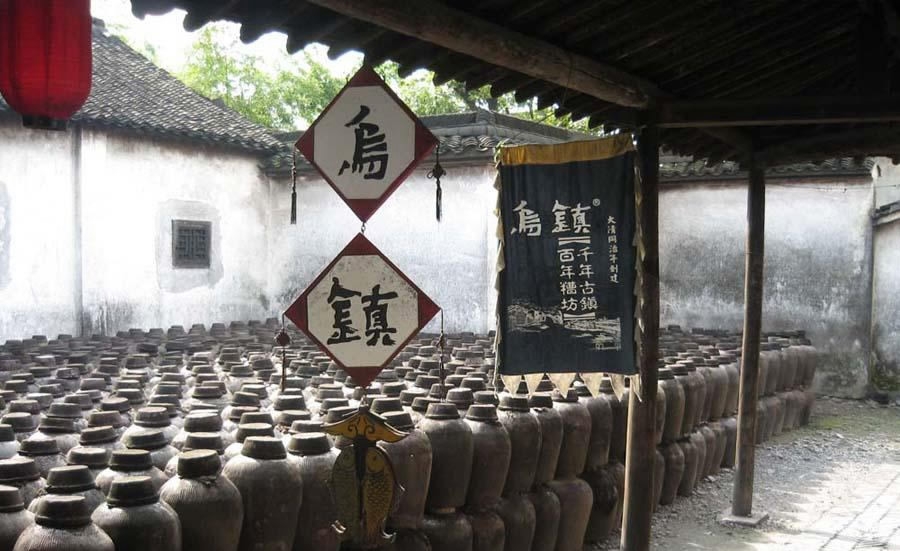
Sanbai wine in Wuzhen. /Photo via easytourchina.com
Sanbai wine in Wuzhen. /Photo via easytourchina.com
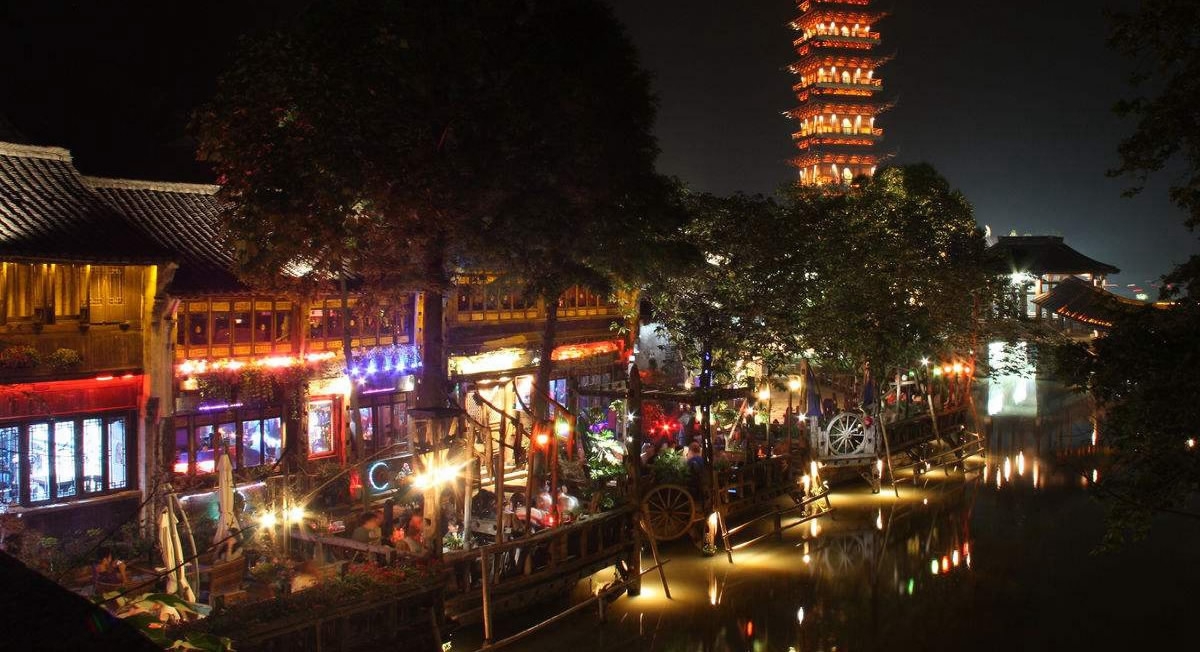
Bars in Wuzhen. /Photo via huitu.com
Bars in Wuzhen. /Photo via huitu.com
China is considered the heartland of tea and tea culture. Wuzhen’s roasted bean tea is definitely one of the best in the region. People in Wuzhen often say “eat tea," because the delectable bean tea is not only made of smoked soybean, but also brewed with other ingredients, such as sweet osmanthus, fried sesames, orange skins and radishes.
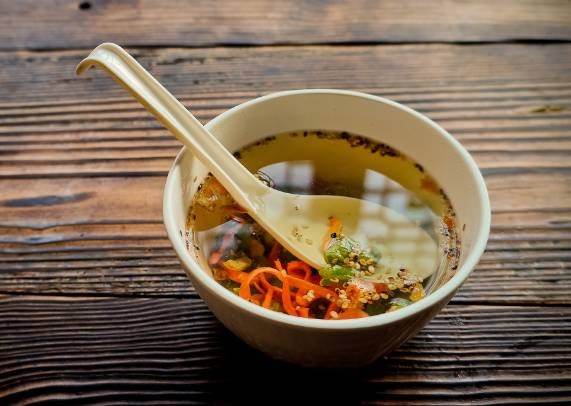
Wuzhen’s roasted bean tea. /Photo via easytourchina.com
Wuzhen’s roasted bean tea. /Photo via easytourchina.com
It is the combination of culture and local cuisine that makes Wuzhen stand out. Different kinds of palatable restaurants and eateries with real gourmet food can be found at almost every corner on streets. Whether sampling local delicacies and refreshments, taking boat cruises on the canal, or just exploring the labyrinthine narrow streets of the town, the travel experience in Wuzhen is guaranteed to be as enthralling as its history.

